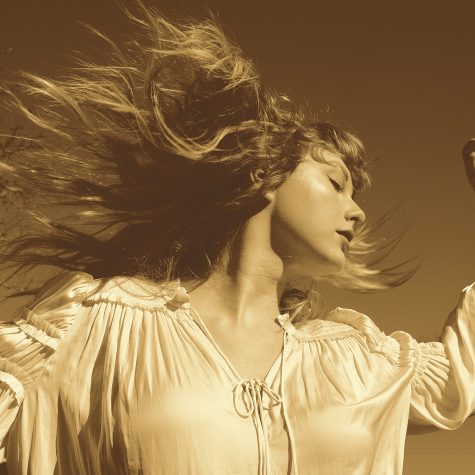The power of Taylor Swift’s re-recordings
February 17, 2021

In a surprise posting on Feb 11, Taylor Swift announced her newest album, “Fearless (Taylor’s Version),” a rerecording of 2008’s “Fearless.” The album will have 26 songs, including six previously unreleased songs, written when she was a teenager. To kick off this new era, Swift released “Love Story (Taylor’s Version),” along with a lyric video featuring photos and videos from Swift’s early days with her fans.
While some may question the significance of rerecording a 13-year-old album in the same style of the prior recordings, the importance of this new project goes beyond the musical changes, although there are certainly elements unique to “Love Story (Taylor’s Version).” This project represents the first step in Swift reclaiming and owning all of her own work. As she wrote in her statement, “Artists should own their own work for so many reasons, but the most screamingly obvious one is that the artist is the only one who really knows that body of work.”
Swift signed with record label Big Machine, owned by Scott Borchetta, in 2006, when she was only 16, meaning the label owned the rights to her first six albums, all released through Big Machine. In 2017, Swift left Big Machine and signed with Universal Music Group, an agreement which allowed her to own her future masters.
While Swift was aware that her previous masters would likely be sold by Borchetta, she felt betrayed by who he sold them to. In 2019, Borchetta sold Big Machine, and therefore Swift’s previous masters, to Scooter Braun. Braun is a famous music executive who Swift has accused of “incessant, manipulative bullying.” Braun also represents Kanye West, who Swift has long publicly feuded with. Swift learned of this sale alongside the rest of the world, calling the situation her “worst case scenario.”
This history adds a new layer to Swift’s re-recordings, a project she has been looking forward to since the sale of her masters. Listening to “Love Story (Taylor’s Version),” there are no abrupt changes from the original — the song still has the same longing lyrics and grand musical arrangement. Her voice has matured, however, and the production is cleaner. Above all, Swift fully owns the rights to “Love Story (Taylor’s Version),” and this pride is almost perceptible in the song.
As she wrote in “it’s time to go,” a bonus track from her most recent album, “evermore,” “He’s got my past frozen behind glass but I’ve got me.” While Braun may own the original masters of Swift’s first six albums, the re-recordings prove that he can never take her talent.






















Leave a Comment